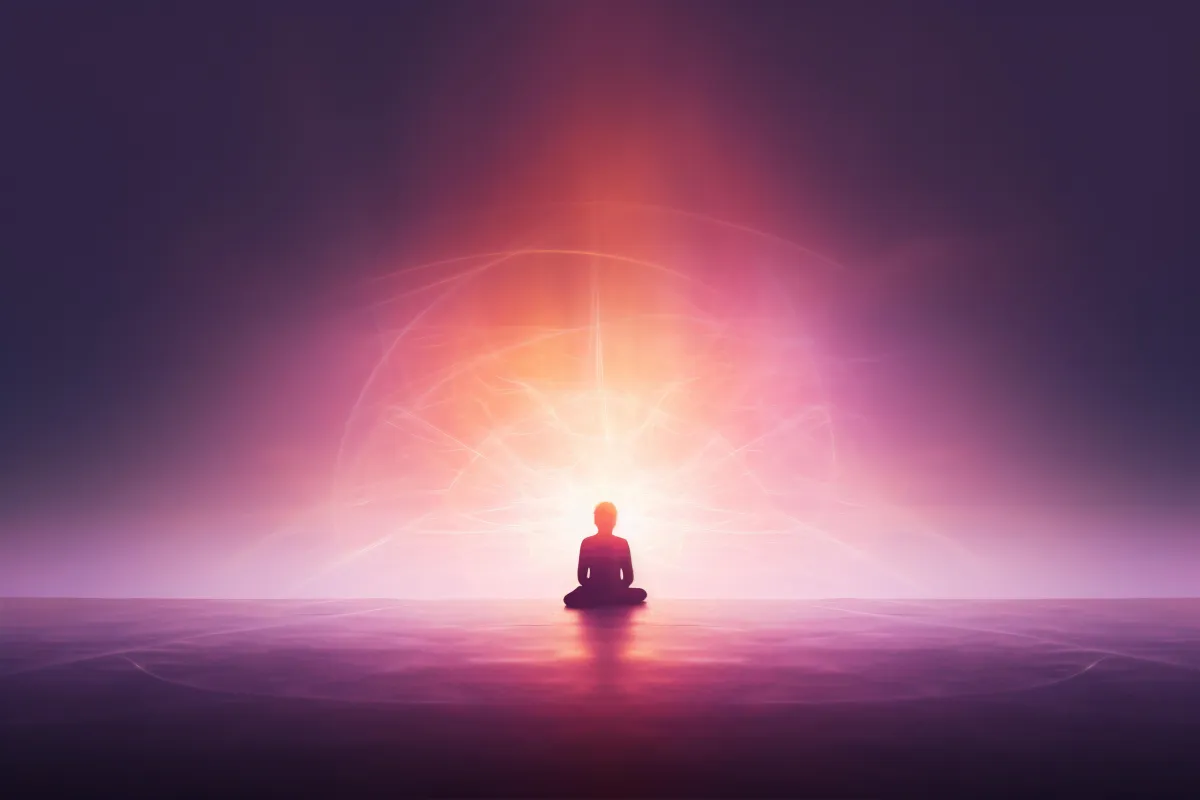JACKIE WOODSIDE
COACHING BLOG

The Hidden Addictions Keeping You from Conscious Living
You probably think you know what addiction looks like. But what if I told you that your most significant addictions aren't to substances or obvious behaviors, but to patterns so deeply embedded in your daily life that they feel normal, even virtuous?

The Addiction You Don't See Coming
I realized I'm addicted to doing. Not just busy—addicted to doing. Given the choice between sitting quietly with a cup of tea, looking lovingly at my spouse and the beautiful river in front of me, or getting up to do something, I'll choose doing every single time.
This isn't about being productive or accomplished. This is about neurological patterns so entrenched that I do things automatically, without conscious choice. When I say "addicted," I mean two things specifically:
Repeating a behavior over and over, even though you know it has negative impact
Neural pathways so deeply embedded that you do the thing unconsciously
While emptying out my great aunt's cottage as we prepare to tear it down and build a new home (more doing!), I observed this pattern in myself. I would rather do stuff than just about anything else. What I came to see is that I get so much of my self-worth from doing that I've lost the ability to choose presence over productivity.
Sound familiar?

The Second Hidden Addiction
Then I discovered another one: I'm addicted to thinking.
My neurology and psychology are more comfortable with lots of thoughts than with stillness. I find my thought processes fascinating—which is both the blessing and curse of being a high-consciousness, high-intelligence, and high-curiosity person. The blessing is that it's such a big world to explore mentally. The curse is that it never ends.
Here's the problem: without mastering the ability to go to stillness, you can't connect to the part of your soul that exists beyond your physical experience. You can't access your guides, your higher self, or whatever you want to call that deeper wisdom. The only way to connect with this guidance is by quieting internally.
Short of that, if you allow the addiction to thinking to drive this wonderfully entertaining inner world, you cut yourself off from the truth of who you are.

The Cultural Programming We're Swimming In
These addictions don't exist in a vacuum. We're living in what I call "mass consciousness"—a cultural soup of chronic overstimulation that programs us for reactivity, stress, and anxiety.
Even my Amish friends, who live outside mainstream culture, complain about being too busy and unable to keep up. When people who don't use phones or electricity are feeling overwhelmed, you know it's in the collective consciousness.
This means that down-regulating your nervous system—bringing it to equilibrium—requires active conscious choices. Peace of mind is not a default state in our culture. It's something you must actively pursue.

The Neuroscience of Conscious Choice
Here's what I want you to understand: How you manage your nervous system is a choice. But when that choice is unconscious, you have no power to choose differently.
When you're not consciously managing your nervous system, you end up living by default, programmed by the culture around you. Even if you have beautifully designed goals and values, if you're operating with an overstimulated nervous system, you're still not living a transcendent life.
The choices we make each day are not separate from our awakening—they ARE the very means through which awakening occurs.
Where Are You Going Unconscious?
This week, I want you to get brutally honest about your default patterns. Where are you making unconscious choices that impact your nervous system and add stress to your life?
Look specifically at:
Food choices: Are you a stress eater? Do you mindlessly snack when overwhelmed?
Media consumption: Mindless scrolling, binge-watching, checking emails compulsively
Reactivity: Flying off the handle when certain people say certain things
Control: Trying to manage outcomes, inserting opinions, checking messages obsessively
Distraction: Using noise to avoid being alone with your thoughts
Be specific. Not "I go unconscious with food," but "I'm a stress eater—when I'm feeling up against it, I gravitate toward carbs and sweets and will even go out of my way to buy them."
Language for Conscious Choice
How you language your world is how you create and experience your world. Here are phrases to help you move toward conscious choice:
"That is not a choice I want to make." Fudgesicle or no fudgesicle? That's not a choice I want to make.
"I'm not choosing to spend my time that way." Instead of ruminating, scrolling, or arguing mindlessly.
"I'm not choosing to spend my money that way." For compulsive or unconscious spending patterns.
"I can choose peace instead of this." This is my favorite. Peace instead of anxiety, peace instead of fear, peace instead of resignation.
The Practice: From Unconscious to Conscious
Remember: every time you notice yourself slipping into unconscious patterns, in that moment of noticing, you're living a transcendent life. That pause, that awareness—that's the opening for making transcendent choices.
You don't have to get this right. It doesn't have to be perfect. A conscious choice that doesn't align with your higher values is still a step on the path of awakening. I remember in early recovery consciously choosing to act out—knowing I shouldn't, but making the choice anyway. That was still consciously choosing, and it was a step in my awakening.
Self-Compassion as Sacred Practice
As we have this conversation about unconscious patterns, it's easy to slide into self-criticism. Don't. Instead, celebrate and bring compassion to your experience as a spiritual being having a human experience.
You are deeply committed to living a transcendent life—that commitment is palpable and beautiful. Every time you catch yourself and redirect your consciousness, thoughts, emotions, or behaviors, you've already succeeded.
Remember: we're salmon swimming upstream. The cultural currents we face are not designed for transcendence. We're not yet living in a world of peace and harmony, so this work requires both vigilance and self-compassion.
This Week's Practice
Choose one area where you know you need to bring conscious choice. Maybe it's the slippery slope of unhealthy eating, or compulsively trying to fix other people's problems, or getting lost in thought spirals.
Use the language tools:
"I can choose peace instead of this"
"That's not a choice I want to make"
"I'm not choosing to spend my time/energy this way"
Each conscious choice you make is a step into awakening. Each time you pause and bring awareness to your patterns, you're opening the door to transcendence.
The Holy Trinity of Transformation
We're working at the intersection of psychology, neurology, and spirituality—what I think of as another kind of Holy Trinity. To elevate spiritual consciousness, we must master both our psychology and neurology. It's a beautiful dance between the practical and the transcendent.
This is why you chose to incarnate at this time, with these challenges and these people on your stage. Not to live unconsciously, programmed by cultural defaults, but to create the experience of transcendence in human form.
You are not the victim of your neurology or your circumstances. You are the conscious chooser of your experience. Even when it's difficult. Even when you're swimming upstream.
Choose consciously. Choose wisely. Awaken.

Jackie Woodside
Jackie is a torchbearer for a vision of a world transformed; illuminating freedom, fulfillment and passion; igniting the flame of infinite possibility for the human spirit. She seeks to support the evolution of humanity through elevating consciousness.
STAY IN TOUCH FOR MORE
Jackie Woodside
has created, and will continue to create new programs, speak internationally, write MORE books, launch MORE podcasts, and may even be coming to your city soon. So, join us and stay in the loop! Let us know where to email you…
Home
Coaching
Courses
Blog
Podcast
Press & Media
